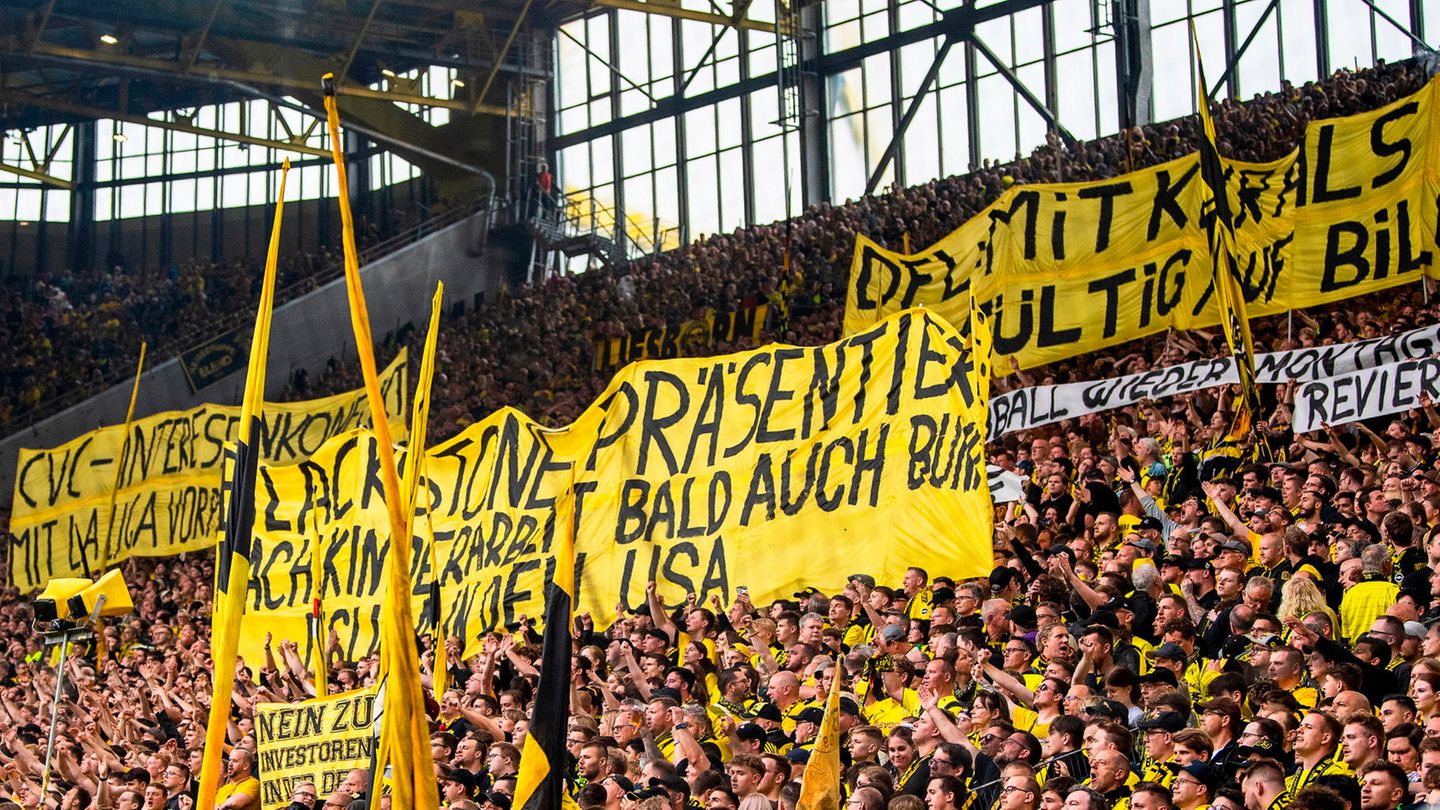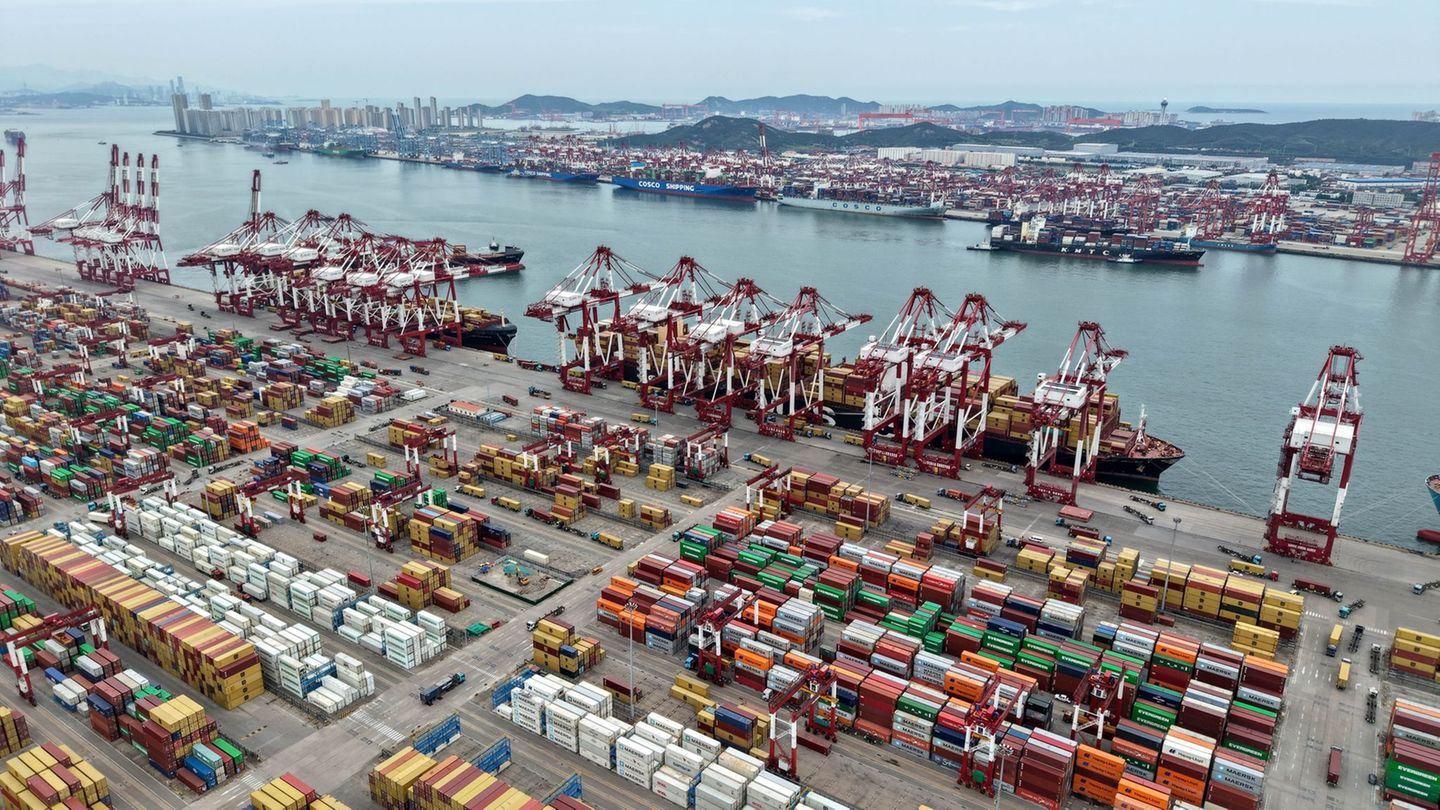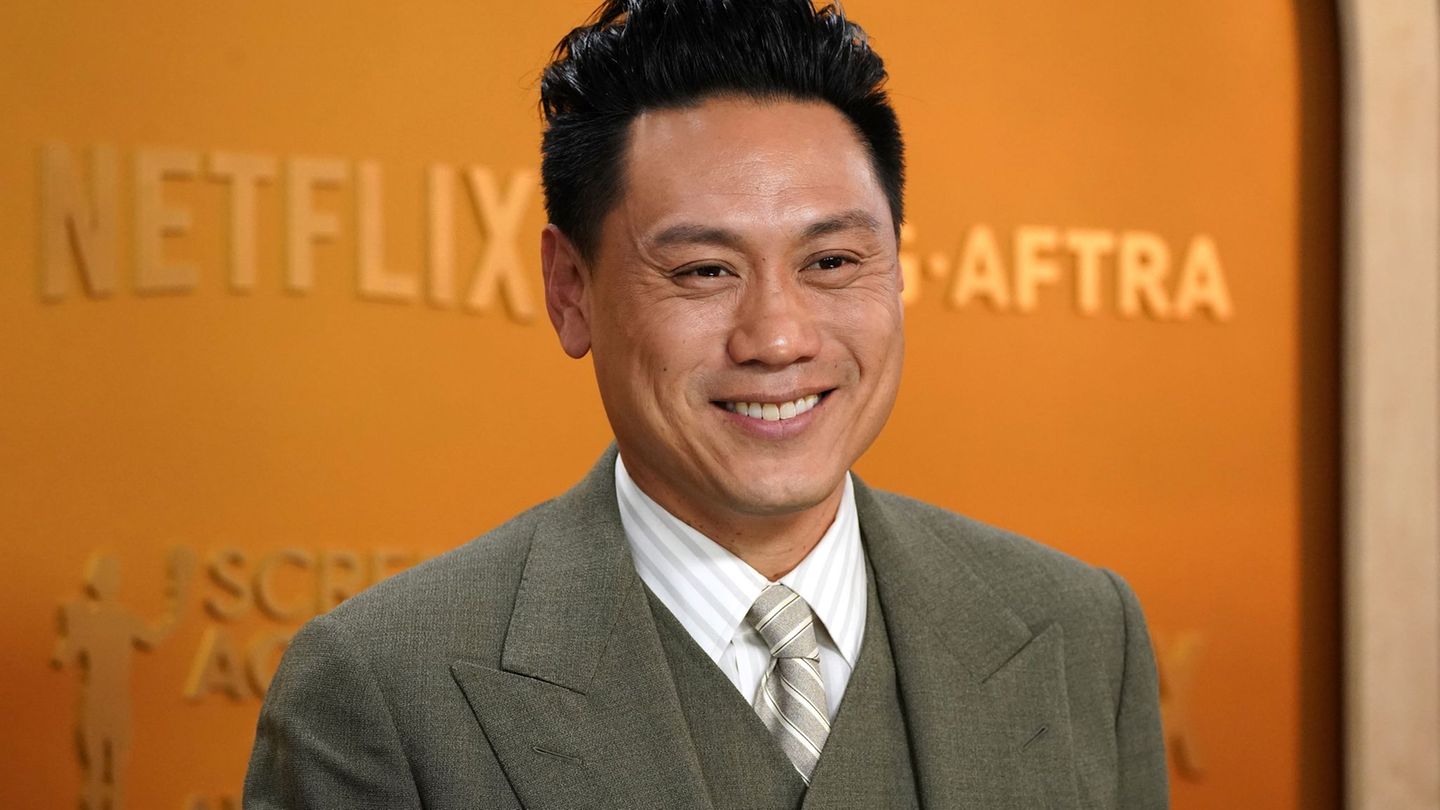The German Football League wants to sell some of its media rights to an investor. The DFL and the Bundesliga clubs bring in a lot of money. There is a fear among football fans: How much influence will the donors have?
The skepticism among football fans is enormous: The German Football League, in which the 36 football clubs in the first and second Bundesliga are organized, wants to sell part of the national and international media rights to an investor. Fan organizers have sharply criticized the project, and numerous club representatives have also expressed reservations in the past.
For this reason, DFL boss Axel Hellmann and DFL supervisory board boss Hans-Joachim Watzke were recently guests at an event in the Borussia Dortmund stadium, which was organized by the Dortmund fan alliance Bündnis Südtribüne and the BVB fan department. Watzke and Hellmann promoted the deal and tried to refute supporters’ criticism. One fear, for example, is that the investor could influence the kick-off times. That will not happen, Hellmann reiterated at the meeting: “The concern that the game day will be fanned out is theoretical. We could do that now, but we won’t do it because there is a football culture in Germany. There will never be a game day spread.” It is unclear whether the efforts of the DFL bosses have borne fruit and whether the deal will be completed in the next few weeks.
In the following, the star answers what it is about and what the critics complain about:
What’s the deal?
The plan provides for the future investor, a private equity firm, to acquire 12.5 percent of the marketing of the national and international Bundesliga media rights for around two billion euros for a period of 20 years. In the next step, the rights would be outsourced to a subsidiary called “DFL MediaCo GmbH & Co. KGaA”.
This is how the distribution of income should look like:
40 percent (800 million euros) are to be used for the digitization and internationalization of the DFL: An online platform for the distribution of content is to be set up and, above all, fans abroad, especially younger ones, are to be addressed.
45 percent (900 million euros) should be put into the infrastructure of the clubs: the clubs should invest in their stadiums, youth academies and offices.
15 percent (300 million euros) remain at free disposal: Here the clubs should be able to invest in new players or reduce debt to increase their attractiveness. The distribution of money for infrastructure and
Who decides the deal?
The DFL is arranging the deal, and the clubs will vote on it at an extraordinary general meeting on May 24th. A two-thirds majority is required for the deal to go through. So at least 24 clubs have to agree. In the days before, the DFL will present the concept and the possible buyers to the clubs – and still have to do some convincing. Nevertheless, there should be a tendency to approve the deal.
What does the DFL say?
For the DFL, the sale of the media rights is absolutely necessary so that the Bundesliga does not lose touch with the other European leagues, which earn significantly more through foreign marketing. In fact, no one doubts the need to develop new sources of income. When meeting the fans, Hellmann summed up the financial situation of the German football clubs in one picture: “It’s raining a bit on the roof, it’s got holes. But how do you get the roof tight again?” Watzke referred to the lack of income in the past Corona years: “Corona with all its effects is responsible for the fact that we now have a need for investment.”
What are the critics saying?
The fans in particular do not believe in the promises made by the DFL leadership. In the stadiums nationwide they protested against the deal with banners and banners. “There are a lot of fears and concerns among the fans with this construct. It’s about classic topics such as match day schedules and venues,” commented Jakob Scholz, chairman of the BVB fan department.
Hellmann and Watzke ruled out such changes, but ultimately they cannot know what will happen in five or ten years. Criticism also comes from the clubs: “The money that the league is getting now will be missing in the medium to long term,” said Cologne Vice President Eckhard Sauren recently. He criticized that “central future revenues should be brought forward” and thus addresses a risk factor: The deal only makes sense if media revenues continue to rise. Individual clubs are therefore pleading for a loan or a bond in order to maintain the independence of the clubs.
Sources: DPA, “”, “”, “”
Source: Stern
I am Pierce Boyd, a driven and ambitious professional working in the news industry. I have been writing for 24 Hours Worlds for over five years, specializing in sports section coverage. During my tenure at the publication, I have built an impressive portfolio of articles that has earned me a reputation as an experienced journalist and content creator.




